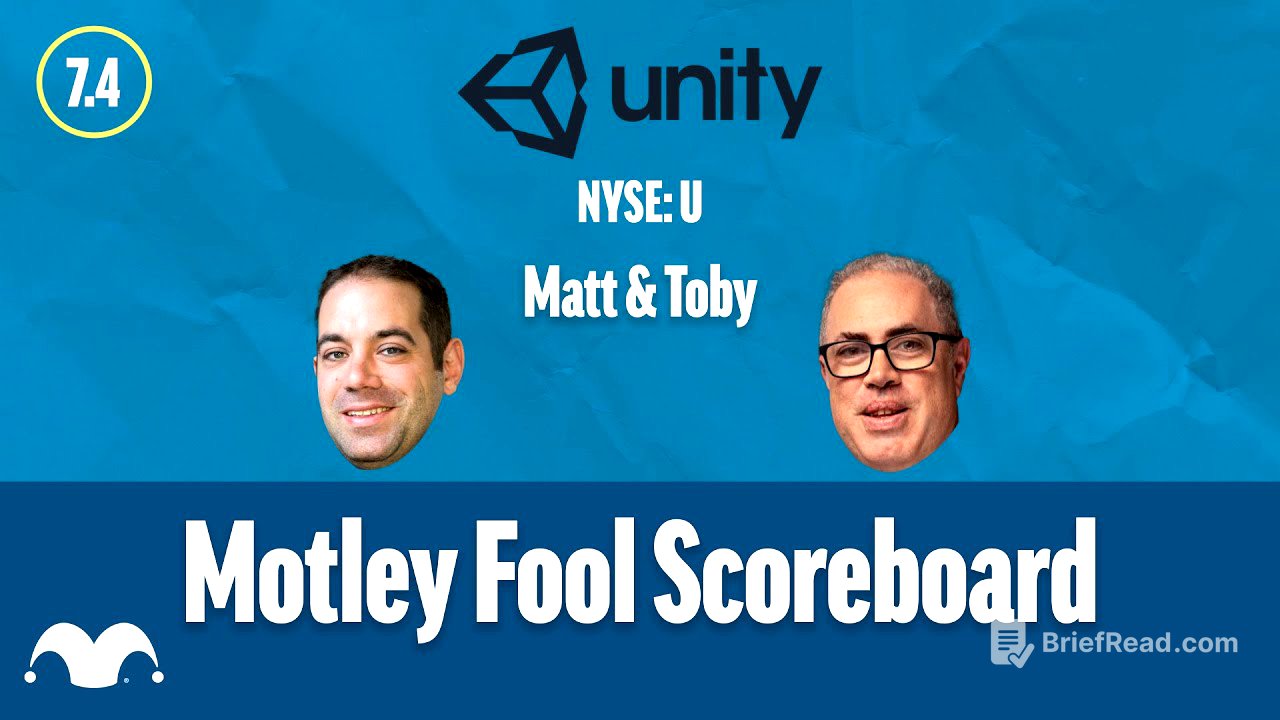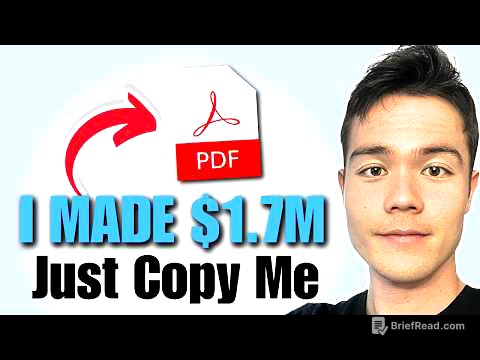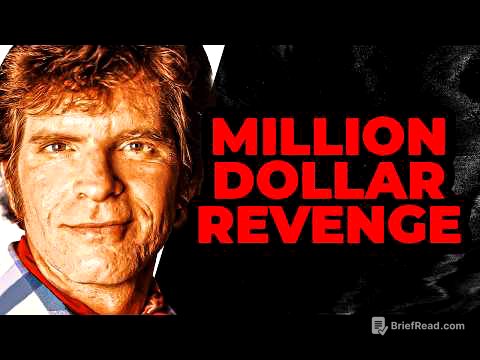TLDR;
This Motley Fool scoreboard segment assesses Unity Software (ticker symbol U) across four key dimensions: business strength, management, financials, and valuation. Both analysts are optimistic about Unity's potential, particularly noting the positive impact of the new CEO and the company's expansion into emerging applications like AI. However, concerns remain regarding profitability and execution risk, leading to a consensus that while Unity offers the potential for high returns (15% plus), it remains a riskier investment. The final score is 7.4 out of 10.
- Unity's business strength is rated favorably due to its turnaround and expansion into AI.
- Management is seen as a significant improvement over the previous team.
- Financials are a point of concern due to losses and high stock-based compensation.
- Valuation suggests high growth potential but with considerable execution risk.
Business Strength [0:28]
Matt gives Unity a 7, while Toby rates it an 8 for business strength. Toby highlights the successful turnaround under the new CEO, Matthew Bramberg, who has restored trust with customers and developers. He also points to the strong growth of the Vector AI ad platform and the company's expansion beyond its gaming core into emerging applications. Matt agrees that the progress is impressive, noting the ad network's revenue growth of 15% sequentially and the almost 60% year-over-year growth in free cash flow. He also mentions the potential in automotive, robotics, and other sectors.
Management [1:47]
Both Matt and Toby give Unity's management an 8. Toby emphasizes that the current management is a significant improvement over the previous team, as evidenced by the improving business performance in recent quarters. Matt echoes this sentiment, recalling the previous management's unpopular fee-based cost structure that led to customer backlash. The new team's ability to reverse course and move in the right direction is seen as a positive sign, although it's still early in their tenure.
Financials [2:36]
Matt gives Unity a 6 for financials, while Toby rates it a 7. Toby notes that while revenue is growing, it remains below past highs. The company is still losing money on a GAAP basis, but free cash flow is growing, and the balance sheet and liquidity appear healthy. Matt expresses more concern, pointing out that the company is losing money despite a 29% free cash flow margin, which he attributes to high stock-based compensation. He notes that stock-based compensation was almost $600 million last year for a roughly $14 billion business, leading to significant dilution. While Unity has $1.7 billion in cash, Matt believes they need to control stock-based compensation to become sustainably profitable.
Valuation [3:40]
Both Matt and Toby predict a 15% plus return on the stock price over the next five years but assign a safety rating of 5. Matt believes that achieving this return is contingent on the current momentum continuing and the right team remaining in charge. He sees significant execution risk in replicating their gaming success in markets like robotics and automotive. Toby agrees that high growth is possible but uncertain, making Unity a riskier investment. He points out that high returns typically come with higher risk, and Unity is a prime example of this dynamic.





![[무역영어] 핵심 이론 총정리! 11시간 동안 어려운 것만 골라 완전 정복하기 💯📗ㅣ 해커스금융 진민규](https://wm-img.halpindev.com/p-briefread_c-10_b-10/urlb/aHR0cDovL2ltZy55b3V0dWJlLmNvbS92aS9ZQmtnM0o1X1Q0WS9ocWRlZmF1bHQuanBn.jpg)



